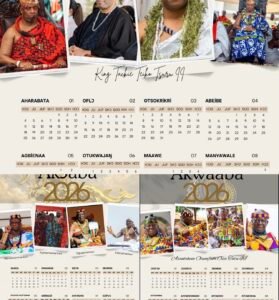
In a heartfelt social media post that’s sparking important conversations around linguistic inclusion, Chief Executive Officer of the Youth Employment Agency (YEA), Maleek Basintale, is calling on domestic airlines in Ghana to embrace the use of local languages in their in-flight communications.
The ‘Basintale Boy’ shared his recent experience aboard a Fly Africa World flight from Kumasi to Accra, commending the airline for translating the pilot’s announcements into Twi. He described the gesture as thoughtful and beautifully done, an initiative that acknowledged the cultural and linguistic landscape of the Ashanti Region, the land of the powerful Asante Kingdom.
However, he quickly pointed out a noticeable inconsistency during a previous flight he took from Tamale to Accra, where no translation was provided in Dagbani. This was despite Tamale being the capital of the Northern Region and the seat of the revered Ya-Naa. Basintale expressed his disappointment, noting that he had hoped to experience the use of Dagbani, one of Ghana’s fastest-growing indigenous languages in the same way Asante Twi was beautifully used on the Kumasi flight. Unfortunately, that expectation was unmet.
One may point to the fact that his Northern Ghana root may have sparked his thought and advocacy for Ghanaian languages and especially Dagbani in Ghana’s aviation industry but that was clearly not the case. His appeal went beyond regional interest, as he emphasized the importance of incorporating the dominant local languages at every destination across the country. He cited examples such as Fante in Takoradi, which is widely spoken in the Western Region, and Ewe in Ho, the capital of the Volta Region. For him, the goal is simple; ensuring that passengers, regardless of their linguistic background, feel seen, heard, and included throughout their journey.
After he made the post, it sparked diverse reactions, some backing the idea and some not in support at all. Some argued that English and Twi already serve as the most widely spoken languages in Ghana and should be prioritized instead of trying to cater to each region individually. A few also pointed to international aviation standards, noting that pilots and air traffic controllers are required by the International Civil Aviation Organization (ICAO) to communicate strictly in aviation-standard English. From that perspective, they felt that translating announcements into local languages wasn’t necessary, and might even complicate established procedures.
One funny comment that caught attention came from Jon Benjamin, the former British High Commissioner to Ghana. Known for his humour, he added his voice to the conversation with a subtle endorsement of the idea. He remarked that using local languages on flights was indeed a good move but jokingly added that the translator shouldn’t be Reverend Obinim, “because no one would understand the language he speaks.” His comment sparked laughter across social media, adding a humorous twist to an otherwise serious linguistic discussion.
The discussions around this topic continue to gain momentum, with opinions pouring in from all corners. But what about you? Where do you stand? Do you support Maleek Basintale’s call for local languages to be included in aviation communication, or do you think English should remain the standard? We’d love to hear your thoughts. Join the conversation and share your views with us on all our social media platforms.
Editor: Ama Gyesiwaa Quansah






That is finding pride in our language too. We’ll get there too.
This is a thoughtful initiative by Maleek Basintale, and I completely agree with his call for linguistic inclusion in Ghana’s aviation industry. It’s heartwarming to see airlines like Fly Africa World embracing local languages, as it fosters a sense of cultural pride and inclusivity. However, the inconsistency in using Dagbani on the Tamale-Accra flight is disappointing, especially given the cultural significance of the region. I wonder why there’s such a disparity in implementing this practice across different routes. Do you think it’s a matter of resources, awareness, or prioritization? It’s crucial for airlines to recognize the value of linguistic diversity and ensure it’s applied uniformly. What steps can be taken to make this a standard practice across all flights? I’d love to hear your thoughts on how we can push for this change.
This is a really thoughtful initiative by Maleek Basintale! It’s refreshing to see someone advocate for linguistic inclusion in such a meaningful way. Translating in-flight announcements into local languages not only makes travel more inclusive but also celebrates Ghana’s rich cultural diversity. However, I’m curious why airlines aren’t consistent in implementing this across all regions. Shouldn’t all passengers, regardless of their origin, feel equally valued? Also, do you think this push for local languages could extend beyond aviation to other sectors? It seems like a small change that could have a big impact on national identity. What’s stopping airlines from making this a standard practice? Would love to hear your thoughts on this!
Would really love to see this done too but in our part of the world, topics on languages aren’t given the deserved attention.
The website design looks great—clean, user-friendly, and visually appealing! It definitely has the potential to attract more visitors. Maybe adding even more engaging content (like interactive posts, videos, or expert insights) could take it to the next level. Keep up the good work!